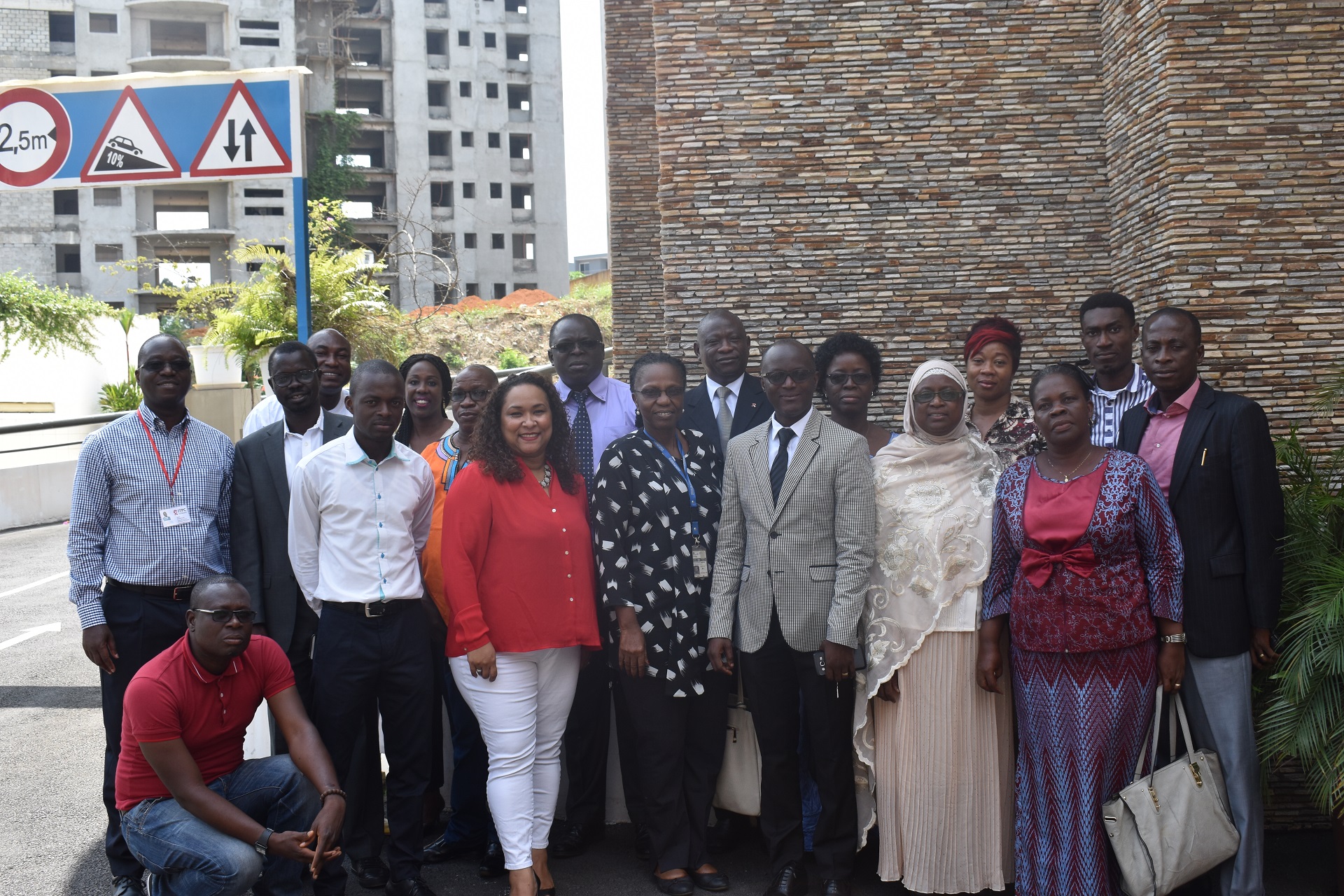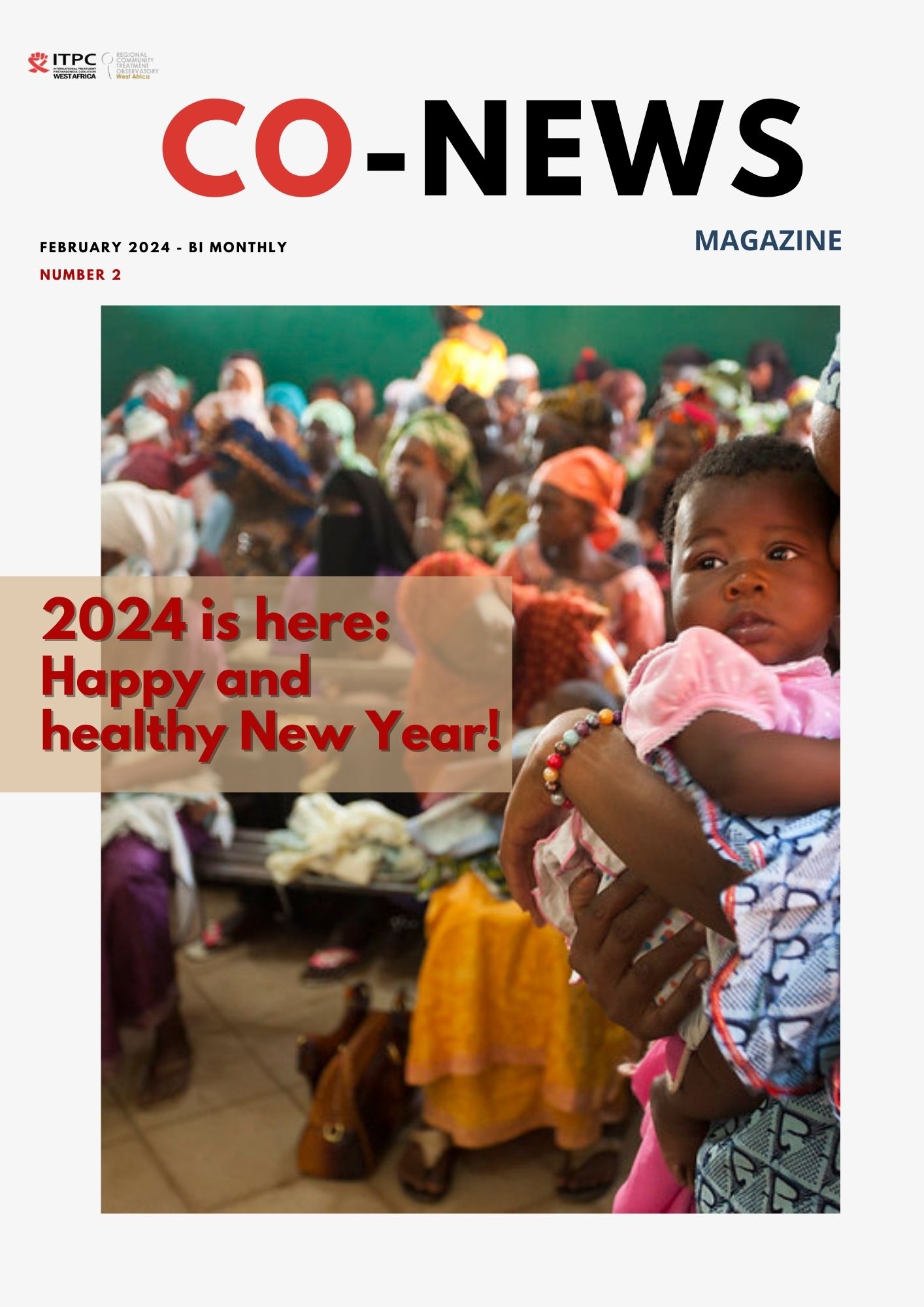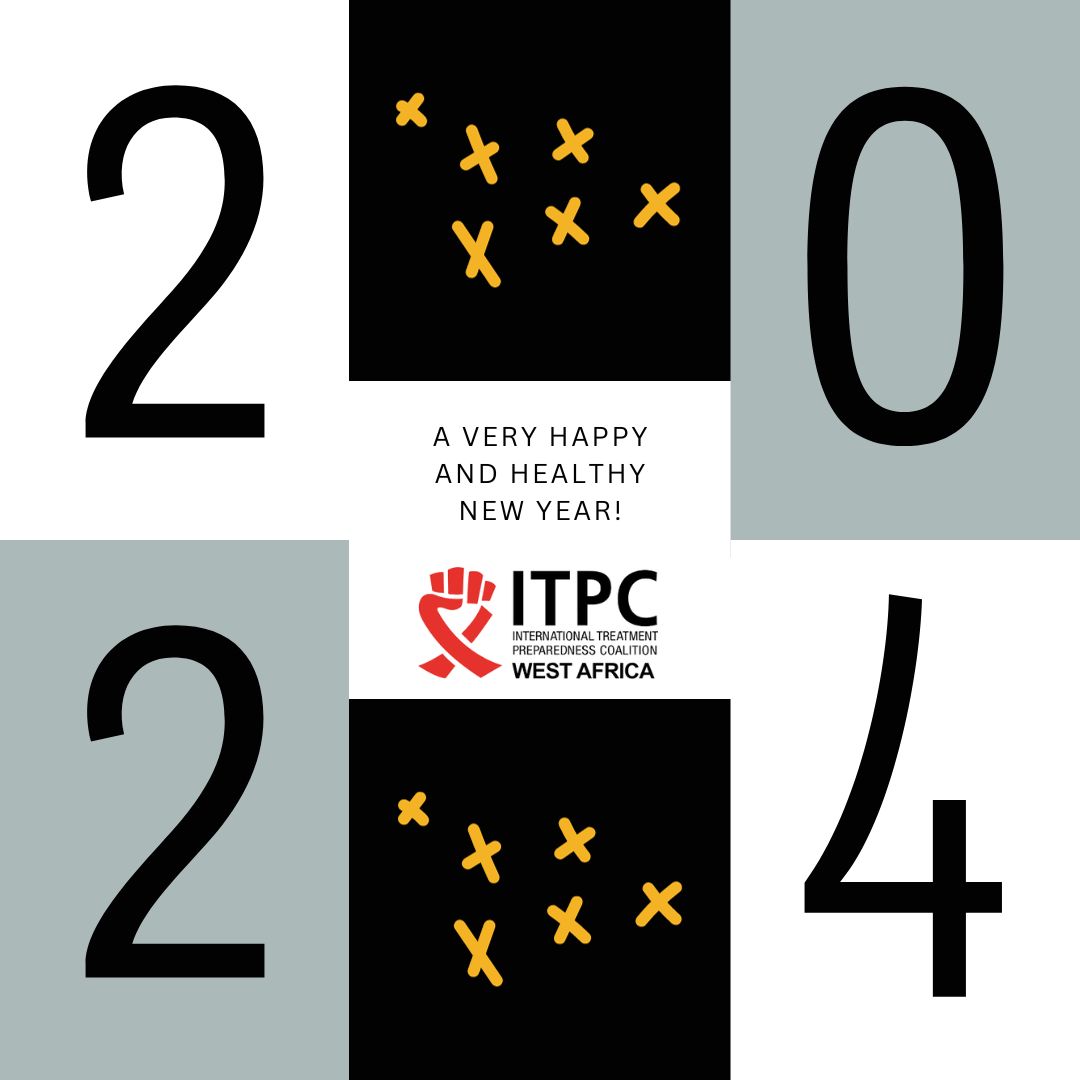RCTO-AO is a project based on strengthening networks of people living with HIV (PLHIV) so that they collect and analyze quantitative and qualitative data on barriers to access to HIV treatment and care. The main objective of the project is to improve access to antiretroviral treatment for PLHIV in 11 priority countries in West Africa. These countries are Benin, Ivory Coast, Gambia, Ghana, Guinea, Guinea Bissau, Liberia, Mali, Senegal, Sierra Leone, and Togo.
In its practical phase, the project relies in its regional dimension on the establishment of institutional frameworks to support, guide, analyze and discuss the data collected by the countries, and stored at the level of the regional database.
All this work, which aims to produce evidence based advocacy on factual data, is carried out by the Regional Advisory Board which, like the community advisory groups at the national level, remains a framework for representing high level of players from reference bodies.
In order to support the RCTO-WA project, ITPC has set up a Regional Advisory Council (RAC), as a platform to discuss the data collected, identify some advocacy programs and support the development and implementation of the agenda. ORCT Regional Advocacy Program.
The Regional Advisory Council (RAC) is an inclusive body that includes representatives of government institutions, financial and technical partners, project target groups, key civil society actors, and experts. It remains a framework for discussion, reflection, advice and advocacy.
The structure of the CCR includes a President Innocent Laison, Executive Director of AFRICASO, a Vice-President Christine Gonhi, President of the Coalition of Organizations of Women Living with HIV in Côte d'Ivoire and the members present according to the following categories:
Normative Agency:
• UNAIDS Regional Support Team for West and Central Africa
• UNICEF Regional Office for West and Central Africa
• WHO Country Offices in Côte d'Ivoire
• CCM of Ivory Coast
Government organizations:
• National AIDS Secretariat in The Gambia
• National AIDS Program in Côte d'Ivoire
Civil Society Organizations:
• AFRICASO
• ENDA HEALTH
• RAME (Network for Access to Essential Medicines)
Regional Projects:
• ALCO (Abidjan-Lagos Corridor Organization)
ORCT project partners:
• Y+ representative for West Africa
• COF+CI (Coalition of Organizations of Women Living with HIV in Côte d'Ivoire)
Research Institute
• Regional Research Institute (PAC-CI/ANRS)
ITPC and ORCT-AO project staff represent the JRC secretariat.
The first meeting of this body was held on October 26 and 27, 2017 in Abidjan (Côte d'Ivoire), and aimed to:
- to set up, in an official way, the Regional Consultative Council;
- to present the state of progress of the establishment of the Regional Observatory; members of the Regional Advisory Council;
- to discuss and analyze the first data collected at the level of the Regional Observatory;
- to initiate reflection on possible advocacy agendas, based on the trends that emerge according to the raw data collected.
It should be recalled here that the activities related to the Regional Advisory Council (setting up, operation) in the contractual provisions with the Global Fund are planned for year 2 of the project.
ITPC officials wanted to anticipate the establishment of the Advisory Council to boost and better support the advocacy carried out at the national level by the implementing actors.
The workshop started with an official opening session which was marked by the words of the Executive Director of ITPC Global and the representative of the President of the Country Coordinating Mechanism of the programs financed by the Global Fund to fight against AIDS, Tuberculosis and Malaria in Côte d'Ivoire.
In their interventions, emphasis was placed on the added value of the Regional Community Observatory on Treatment in West Africa, in access to treatment through the empowerment of networks of People living with HIV, in as key implementers. They also urged the members of the Regional Advisory Council to play their role effectively, especially in the context of advocacy for better access to antiretroviral treatment in West Africa.
The first presentation, which focused on ITPC, allowed participants to better understand the establishment of ITPC and its mission since its creation in 2003. Thus followed several other presentations, in order to allowt will be essentially based around cohesion, working to build cohesion but working to make the networks aware of the importance of the success of the project because "it's a tool that we have in our hands that will certainly allow us to show what that we know how to do but also that will allow us to reposition ourselves. Mr. Innocent Laison
The purpose of this small group, the purpose of its actions will meet 2 expectations. One to express through the audit which was very clear on the appropriation of the project by the networks but also to have interlocutors who can validly sit on and/or accompany the CCR in the various advocacy activities.
The success of this grant will give credibility to the regional projects, it is necessary to demonstrate to the stakeholders that the networks, the projects are capable of meeting the challenges incumbent on them. It is with these last words that the members of the Regional Advisory Council said goodbye, promising to meet again very soon, in September 2018, for the third meeting of the CCR; to be even more united for the same cause.

1 year ago




